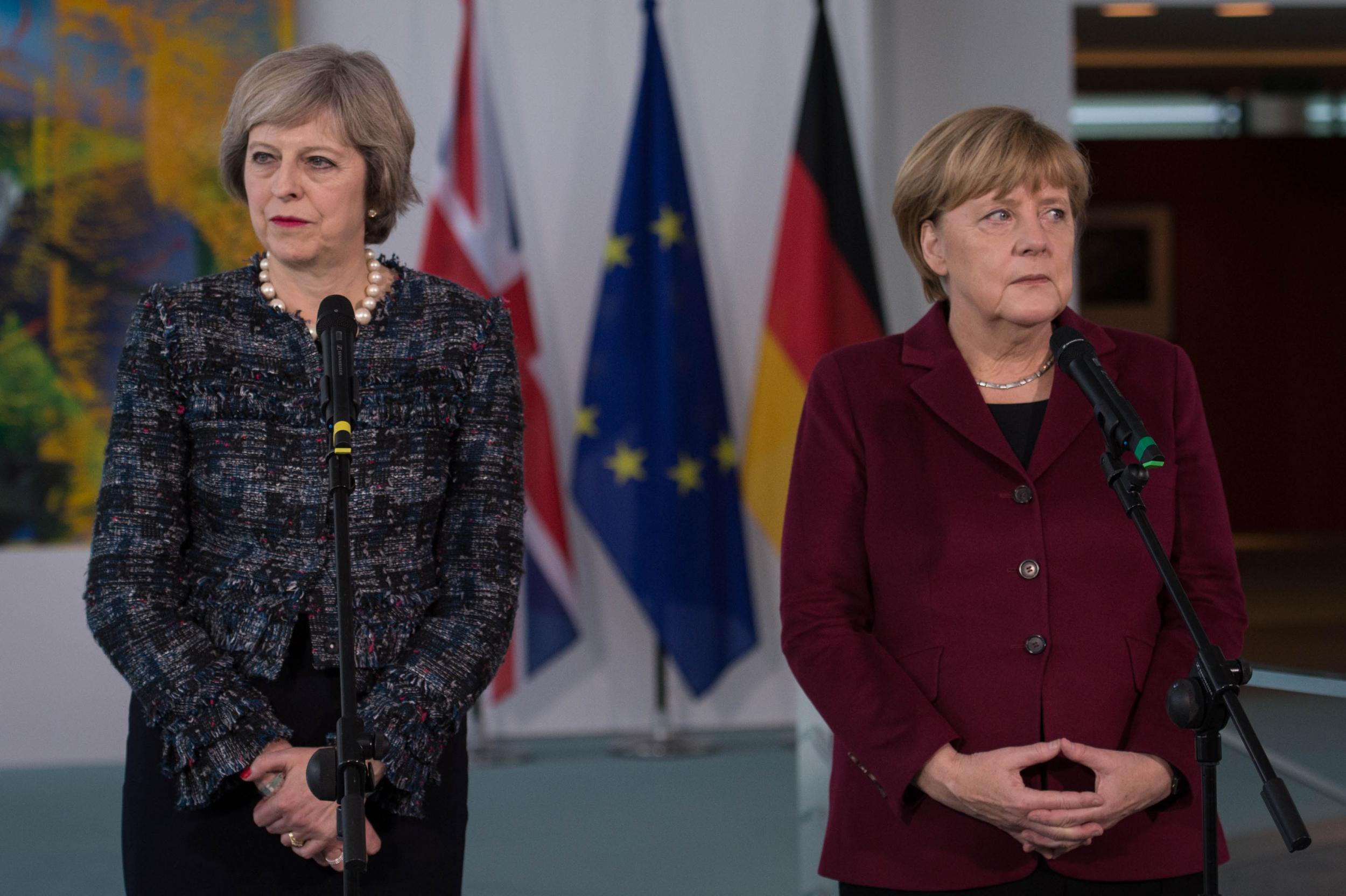Brexit: Theresa May's call for deal on EU migrant rights 'blocked by Angela Merkel'
Informal approach reportedly made by Downing Street earlier this month when the two leaders met in Berlin

Your support helps us to tell the story
From reproductive rights to climate change to Big Tech, The Independent is on the ground when the story is developing. Whether it's investigating the financials of Elon Musk's pro-Trump PAC or producing our latest documentary, 'The A Word', which shines a light on the American women fighting for reproductive rights, we know how important it is to parse out the facts from the messaging.
At such a critical moment in US history, we need reporters on the ground. Your donation allows us to keep sending journalists to speak to both sides of the story.
The Independent is trusted by Americans across the entire political spectrum. And unlike many other quality news outlets, we choose not to lock Americans out of our reporting and analysis with paywalls. We believe quality journalism should be available to everyone, paid for by those who can afford it.
Your support makes all the difference.Angela Merkel has reportedly blocked a request by Theresa May to guarantee the rights of EU citizens before Brexit negotiations begin next year.
The Prime Minister's informal approach to the German leader over EU migrants' status – in a state of limbo since the referendum in June – was made earlier this month when the pair held a joint conference in Germany, according to Politico.
But Ms May's attempt at a “reciprocity deal”, which would have guaranteed the existing rights of around 1.2 million British people on the continent and millions of EU migrants in the UK, was blocked by the German Chancellor.
Since the EU referendum, leaders of other member states have repeatedly warned that they will not engage in any form of negotiation until the UK Government triggers Article 50 – the untested protocol for leaving the union.
Speaking to journalists at a briefing on Tuesday, the Prime Minister's spokesman refused to comment on the private discussions between Ms Merkel and Ms May but added: "We've been very clear we would like to have an early agreement".
In Britain, the Prime Minister has been repeatedly attacked for her failure to guarantee those rights and urged to end the “dreadful uncertainty” of EU migrants. She has faced intense cross-party political pressure to give the assurance and not to treat their rights as a bargaining chip.
And during the Conservative leadership race, Ms May refused to rule out the deportation of EU nationals living in Britain for fear it could lead to a “huge influx” of migrants coming to the country during the Brexit negotiation phase.
At the time, a source close to the Prime Minister told The Independent: “Theresa May was saying it’s unwise to promise right now that all EU nationals living in Britain should be able to stay indefinitely. The reason for that is if we did that the same rights would have to apply to any EU national who comes to Britain before we leave the EU.
“If we made that promise you could just see a huge influx …of EU nationals who would all want to come here while they have that chance.”
At the conference in Berlin earlier this month the Prime Minister moved to reassure her German counterpart that preparations for Brexit were “on track” and stood by her planned timetable to trigger Article 50 before the end of March 2017.
Last month, a poll for The Independent revealed that British people overwhelmingly want Ms May to immediately guarantee the rights of EU citizens living in the UK.
The BMG Research study claimed that two-thirds of people would back a move to guarantee rights now, giving certainty to EU citizens who have no idea if they can still live and work here after Brexit.
Such a move would enjoy majority support across every age and social group, and among the supporters of every political party – except those backing Ukip.
Join our commenting forum
Join thought-provoking conversations, follow other Independent readers and see their replies
0Comments